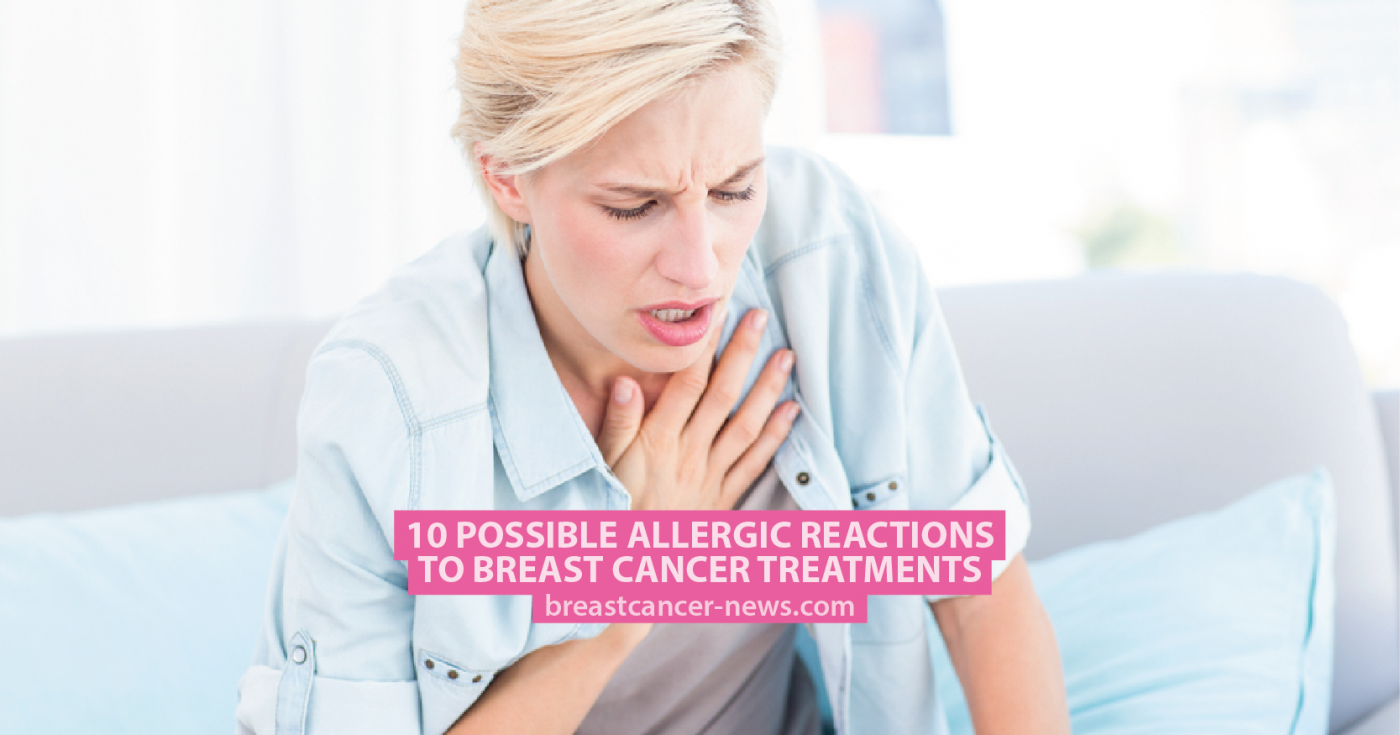Going through breast cancer treatment is difficult. The treatment can make you sick, tired and to top it all off, you can even suffer an allergic reaction to your medication or treatment. This can happen with medications or treatments that are applied topically, taken orally, through an IV, or injected.
The type of allergic reactions you can get from treatments can vary from mild to severe and will differ greatly from patient to patient. While chemotherapy is well-known for its side effects, any breast cancer treatment or medication can cause allergic reactions. We’ve compiled a list of the types of reactions you may suffer when undergoing breast cancer treatment based on information from breastcancer.org.
**It is important that you raise any breast cancer treatment allergic reactions–no matter how mild–with your doctor. If you experience difficulty breathing or your throat starts to swell, call 911 immediately and tell them the medications you’re taking.**
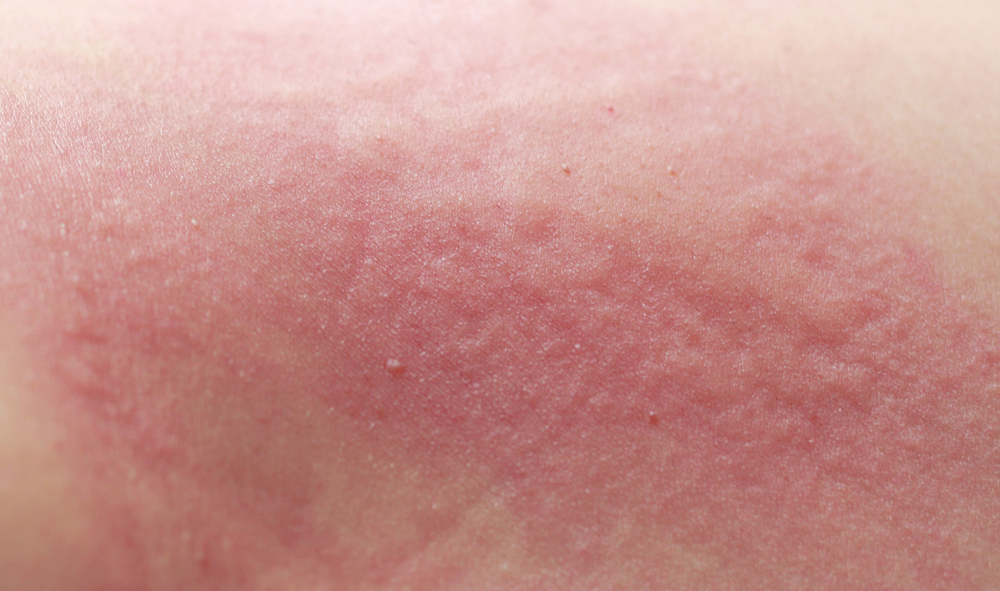
Skin rashes or hives
Any change in the appearance of the skin following treatment can be considered an allergic reaction, which could be redness, raised spots, itching, bumps or blisters. Radiation therapy and the chemotherapy drugs daunorubicin and methotrexate are known for causing rashes as well as various hormonal and targeted therapies. Your doctor can prescribe creams that will help with any rashes.
New topical therapy may reduce the risk of skin damage from radiation.
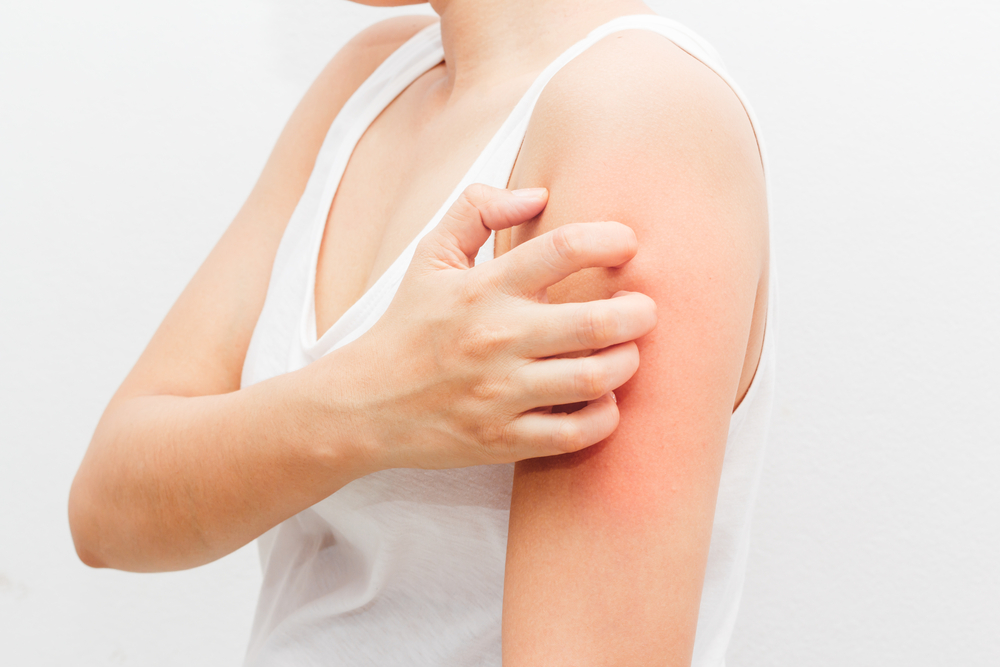
Itching
All-over body itching can be brought on by all types of breast cancer treatments. To ease mild itching, take warm baths, moisturize your skin with creams that have water-soluble bases (aloe vera is particularly good), wear soft clothes and wash with mild PH neutral soaps. Your doctor may be able to prescribe a steroid cream to ease the itching.
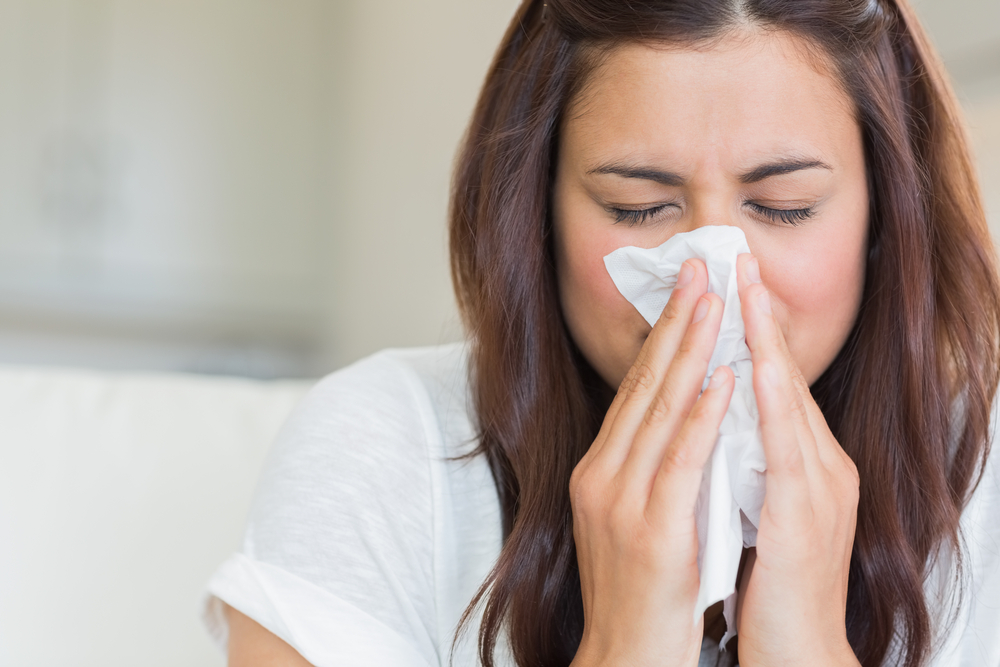
Runny nose or congestion
Nasal problems are a common allergic reaction to medicines and breast cancer treatments. The chemotherapy drug mitoxantrone and the hormone treatment Herceptin are both known for causing runny noses. A balm on your nostrils can help soothe the effects of blowing your nose too much.
Study finds Herceptin found to be best for “worse case” early breast cancers.
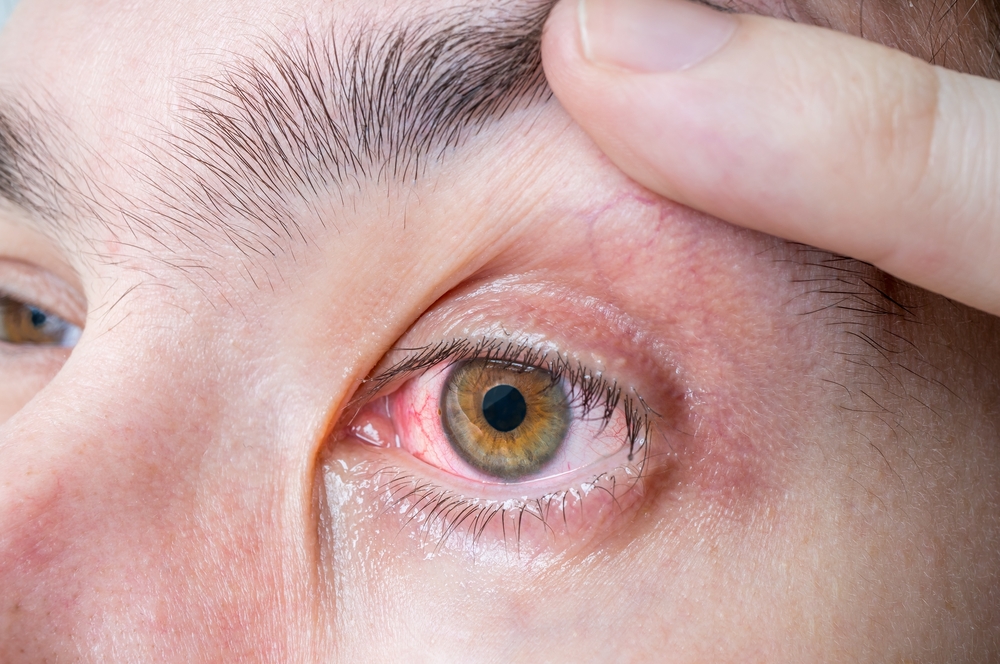
Eye Problems
Although a fairly rare allergic reaction, some breast cancer treatments can affect the eyes making them red and itchy, causing conjunctivitis or more severe vision problems such as seeing dark spots or blurred vision. Try not to touch your eyes as you will make the irritation worse; use eye drops, blink a lot to lubricate the eyes, and swap contact lenses for glasses.
If you have problems with your vision following treatment, you’ll need to call your doctor.
Read what our columnist, Nancy Brier, thinks every breast cancer patient needs to know.

Swelling
Many hormonal treatments, as well as chemotherapy treatments methotrexate and Abraxane, radiation and pain relief can cause facial swelling. If the swelling is mild, it can be treated by raising the affected area and keeping it elevated for as long as possible, avoiding salt and standing for long periods. More severe swelling should be seen by a doctor as it could be a symptom of lymphedema and needs treatment as soon as possible.
SwissMedic approves Abraxane for metastatic breast cancer treatment.

Difficulty swallowing
Some breast cancer treatments can cause difficulty swallowing, including radiation, the chemotherapy drug daunorubicin, and some drugs used when breast cancer has spread to the bones. It can cause a person to dry gag, feel like they have something stuck in their throat, and experience pain when swallowing their food.
To ease the symptoms, chop food into smaller pieces and chew thoroughly before swallowing; eat softer foods or choose soups, yogurts and smoothies over solid foods; sit upright when eating; and avoid spicy foods, alcohol, and very dry foods like crackers or chips.
Some breast cancer patients with low genetic risk may not need chemotherapy a study suggests.
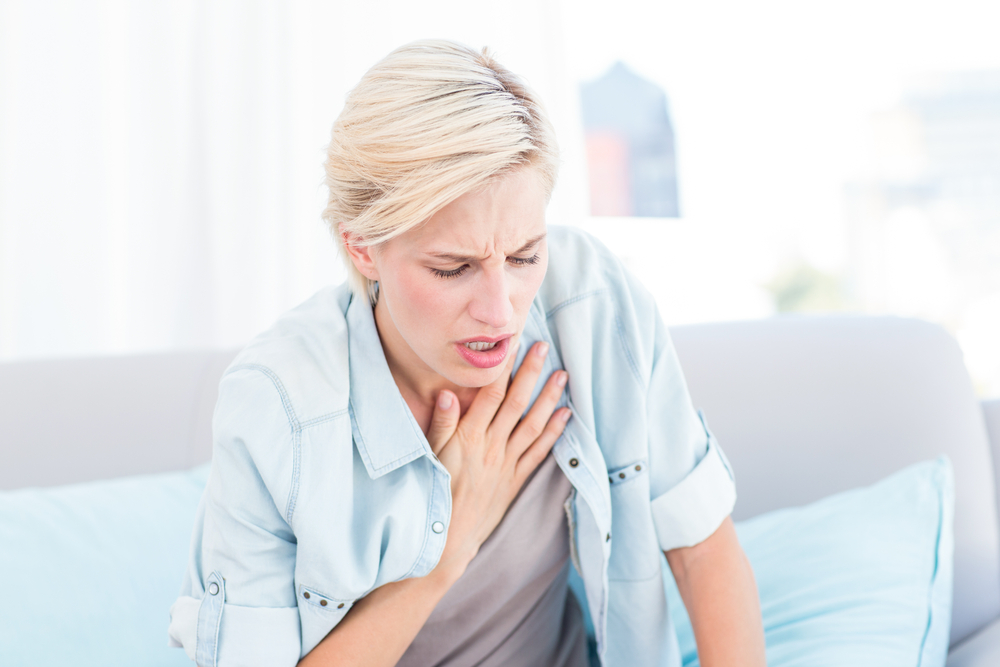
Wheezing and breathing difficulties
There are many breast cancer treatment that may provoke an allergic reaction that results in difficulty breathing or wheezing. Speak to your doctor if you experience any issues, so they can rule out any other reasons for the problem and look at the possibility of changing your treatment.
Read about six common side effects of chemotherapy here.

Feeling Anxious
While anxiety is to be expected when dealing with breast cancer, certain treatments can exacerbate the problem, particularly chemotherapy and hormonal therapy. Talk to your doctor if you start to experience anxiety or depression as they may be able to prescribe antidepressants.
Find out more about anti-hormone treatment and what women say about it.

Nausea and vomiting
Chemotherapy is notorious for making people feel nauseous and causing vomiting, but hormonal treatments and targeted therapies can do the same. If you lose your appetite you might find that eating very small meals helps with nausea and eating dry foods is less likely to upset your stomach. If cooking smells make you nauseous, get someone else to cook for you or eat take-out. If you’re vomiting, speak to your doctor about anti-nausea medication.
New tool for ER-positive breast cancer may predict who needs chemotherapy.

Dizziness or Fainting
Dizziness usually signals a drop in blood pressure, which some cancer treatments can bring about. If you experience dizziness make sure to avoid hot baths, getting up from lying or sitting too quickly, caffeine, alcohol, salt and tobacco as these can all make dizziness worse. Sit or lie down if you feel dizzy until the sensation passes.
Dizziness can also lead to fainting or passing out. This is dangerous as you can injure yourself when you fall. If you feel faint, either sit down with you head between your knees or lay down on your side with your knees and feet drawn up higher than your heart. You will need to alert your doctor as soon as possible.
Find out which types of anti-estrogen therapies are available for breast cancer treatment.
Breast Cancer News is strictly a news and information website about the disease. It does not provide medical advice, diagnosis or treatment. This content is not intended to be a substitute for professional medical advice, diagnosis, or treatment. Always seek the advice of your physician or another qualified health provider with any questions you may have regarding a medical condition. Never disregard professional medical advice or delay in seeking it because of something you have read on this website.

